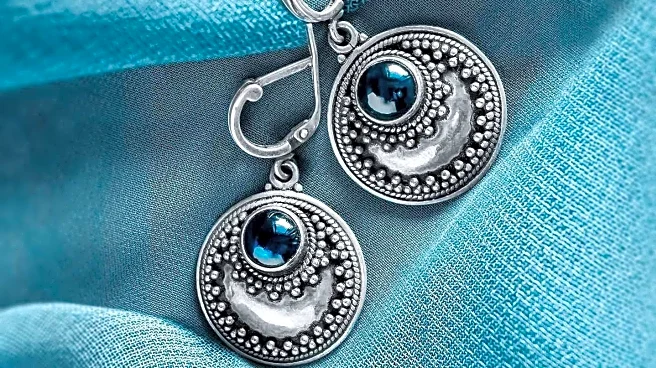What's Happening?
A new restaurant in Queens, New York, named 'Whitexicans' has sparked controversy due to its name, which some online critics have labeled as racist. The establishment, located in Jackson Heights, opened
earlier this month and has been the subject of social media debates. The owners, including Mateo Gomez Bermudez, have stated that the name was intended as a joke and not meant to be offensive. They emphasize that the restaurant aims to be inclusive, welcoming people of all races and nationalities. Despite the backlash, the restaurant has seen significant foot traffic and positive customer feedback since its opening.
Why It's Important?
The controversy surrounding 'Whitexicans' highlights ongoing discussions about cultural sensitivity and political correctness in the U.S. The restaurant's name has been criticized for potentially promoting racial stereotypes and classism, reflecting broader societal debates about identity and representation. This incident underscores the challenges businesses face in navigating cultural dynamics and the impact of social media on public perception. The owners' defense of their choice points to a tension between creative expression and cultural awareness, which can affect community relations and business success.
What's Next?
The owners of 'Whitexicans' may continue to face scrutiny from social media users and local residents. They have expressed a desire for critics to understand the business before forming opinions. As the restaurant remains open, it may need to address ongoing concerns and consider potential changes to its branding or community engagement strategies. The situation could prompt further discussions about cultural appropriation and inclusivity in the restaurant industry.
Beyond the Headlines
The debate over 'Whitexicans' reflects broader cultural shifts in the U.S., where businesses are increasingly held accountable for their branding choices. This incident may influence other establishments to reconsider their names and marketing strategies to avoid similar controversies. It also highlights the role of social media in amplifying cultural debates and shaping public discourse.









